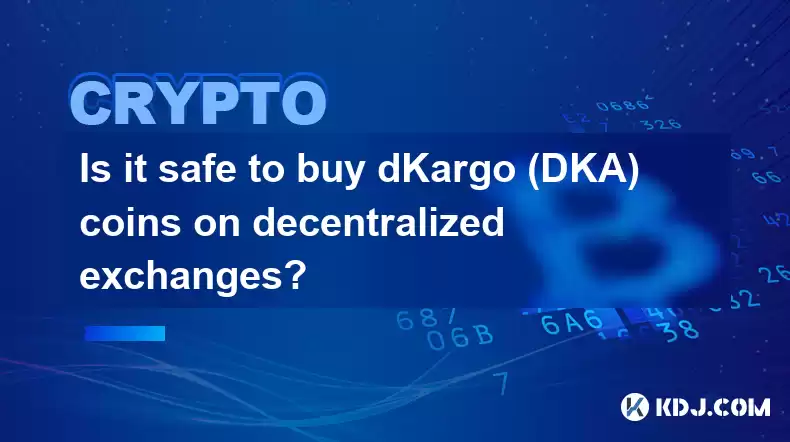-
 Bitcoin
Bitcoin $117700
-1.00% -
 Ethereum
Ethereum $4458
-3.91% -
 XRP
XRP $3.119
0.14% -
 Tether USDt
Tether USDt $1.001
-0.02% -
 BNB
BNB $836.6
-1.56% -
 Solana
Solana $189.5
-3.90% -
 USDC
USDC $0.9998
-0.02% -
 Dogecoin
Dogecoin $0.2335
1.29% -
 Cardano
Cardano $0.9642
1.51% -
 TRON
TRON $0.3539
-1.19% -
 Hyperliquid
Hyperliquid $47.41
-1.84% -
 Chainlink
Chainlink $21.92
-3.28% -
 Stellar
Stellar $0.4286
-0.23% -
 Sui
Sui $3.724
-3.29% -
 Bitcoin Cash
Bitcoin Cash $594.8
-0.78% -
 Ethena USDe
Ethena USDe $1.001
0.04% -
 Hedera
Hedera $0.2501
-2.06% -
 Avalanche
Avalanche $23.96
-4.87% -
 Litecoin
Litecoin $119.0
-2.32% -
 Toncoin
Toncoin $3.473
0.82% -
 UNUS SED LEO
UNUS SED LEO $9.596
0.17% -
 Shiba Inu
Shiba Inu $0.00001301
-0.39% -
 Uniswap
Uniswap $11.03
-0.25% -
 Polkadot
Polkadot $3.935
-2.62% -
 Dai
Dai $1.000
0.01% -
 Bitget Token
Bitget Token $4.564
-1.76% -
 Cronos
Cronos $0.1512
-4.11% -
 Ethena
Ethena $0.7306
-1.09% -
 Pepe
Pepe $0.00001087
-2.68% -
 Aave
Aave $300.2
-4.00%
Is it safe to buy dKargo (DKA) coins on decentralized exchanges?
When assessing the risks of buying dKargo (DKA) coins on decentralized exchanges, consider the exchange's security measures, liquidity, trading volume, and implement strategies to minimize potential risks.
Dec 26, 2024 at 04:03 am

Is it Safe to Buy dKargo (DKA) Coins on Decentralized Exchanges?
Key Points:
- Understanding the risks and benefits of decentralized exchanges (DEXs)
- Examining the security measures of reputable DEXs
- Assessing the liquidity and trading volume of DKA on DEXs
- Tips for minimizing risks when buying DKA on DEXs
Decentralized Exchanges and Their Role in Cryptocurrency Trading
Decentralized exchanges (DEXs) are platforms that facilitate peer-to-peer cryptocurrency trading without the involvement of intermediaries like centralized exchanges. They leverage blockchain technology to provide users with greater control over their assets, anonymity, and resistance to censorship.
Advantages of DEXs:
- Decentralization: DEXs distribute trading operations across a network of nodes, eliminating single points of failure.
- Custody: Users retain complete control over their private keys and funds, unlike centralized exchanges.
- Anonymity: DEXs typically do not require extensive user identification, enhancing privacy.
Risks of DEXs:
- Market Liquidity: DEXs may have lower trading volumes than centralized exchanges, affecting the availability of buyers and sellers.
- Market Manipulation: DEXs can be vulnerable to market manipulation due to their decentralized nature, impacting price stability.
- Security Concerns: DEXes' decentralized structure poses potential security concerns, such as smart contract vulnerabilities and malicious actors.
Security Measures for Reputable DEXs
Recognized DEXs implement a range of security measures to safeguard user funds and protect against malicious activities:
- Smart Contract Audits: DEXs commission third-party audits to review their smart contracts for vulnerabilities and ensure operational reliability.
- KYC/AML Compliance: Some DEXs enforce KYC (Know Your Customer) and AML (Anti-Money Laundering) protocols to prevent illicit activities.
- Multi-Factor Authentication (MFA): DEXs often incorporate MFA to enhance account security and protect against unauthorized access.
- Insurance Coverage: Certain DEXs offer insurance coverage to protect against losses resulting from hacks or other security breaches.
Assessing Liquidity and Trading Volume of DKA on DEXs
Assessing the liquidity and trading volume of DKA on DEXs is crucial for evaluating the ease of buying and selling the token:
- Trading Volume: High trading volumes indicate that numerous buyers and sellers are actively participating in the DKA market, facilitating quick and efficient transactions.
- Market Depth: Market depth refers to the number of orders at different price levels. Sufficient market depth ensures that there are ample buyers willing to purchase DKA at a fair price.
- Order Books: DEXs provide order books that display the number of orders at each price point, allowing traders to gauge market liquidity and potential price movements.
Tips for Minimizing Risks When Buying DKA on DEXs
To minimize risks when buying DKA on DEXs, consider the following tips:
- Research the DEX: Conduct thorough research on the security measures, reputation, and track record of the DEX. Choose platforms with proven reliability and rigorous security protocols.
- Use Secure Wallets: Store your DKA tokens in reputable and secure crypto wallets. Avoid storing significant amounts of funds on DEXs for extended periods.
- Beware of Scams: Exercise caution to avoid phishing attempts or malicious smart contracts designed to steal assets. Always verify the authenticity of the DEX and smart contracts before executing any transactions.
- Monitor Your Transactions: Regularly monitor your transactions and account activity to detect any unauthorized or suspicious behavior. Inform the DEX promptly in case of any irregularities.
Frequently Asked Questions
1. Are DEXs better than centralized exchanges?
The choice between DEXs and centralized exchanges depends on individual preferences and risk tolerance. DEXs offer greater control and anonymity, while centralized exchanges may provide higher liquidity and reduced market manipulation risks.
2. What are the top DEXs for buying DKA?
- Uniswap (UNI): One of the largest and most popular DEXs, known for its wide token selection and liquidity.
- PancakeSwap (CAKE): A DEX focused on the Binance Smart Chain (BSC), offering a vast selection of tokens and low trading fees.
- SushiSwap (SUSHI): A decentralized exchange with various yield farming and liquidity provider opportunities.
3. Is DKA a risky investment?
The investment value of DKA depends on various factors, including the underlying project's success, market sentiment, and overall cryptocurrency market conditions. Conduct thorough research and assess your risk tolerance before investing in DKA.
4. How can I stay safe when using DEXs?
- Research the DEX thoroughly.
- Use secure crypto wallets.
- Beware of scams and malicious smart contracts.
- Monitor your transactions regularly.
Disclaimer:info@kdj.com
The information provided is not trading advice. kdj.com does not assume any responsibility for any investments made based on the information provided in this article. Cryptocurrencies are highly volatile and it is highly recommended that you invest with caution after thorough research!
If you believe that the content used on this website infringes your copyright, please contact us immediately (info@kdj.com) and we will delete it promptly.
- Kazakhstan's Crypto Leap: Bitcoin ETF and Central Asia's Digital Finance Future
- 2025-08-13 12:45:19
- BlockDAG Presale Blazes Past $371M: Fundraising Frenzy Fuels Crypto Sensation
- 2025-08-13 13:05:21
- Meme Coins: Chasing the 2025 Surge – Which Will Moonshot?
- 2025-08-13 10:25:23
- Bitcoin's Wild Ride: Rally, Pullback, and What's Next
- 2025-08-13 10:25:23
- Bitcoin, Bitmax, and Institutional Demand: A New Era of Crypto Investment
- 2025-08-13 10:45:12
- Solana, ROAM, and Airdrops: What's the Buzz in 2025?
- 2025-08-13 11:35:13
Related knowledge

How to purchase Aragon (ANT)?
Aug 09,2025 at 11:56pm
Understanding Aragon (ANT) and Its PurposeAragon (ANT) is a decentralized governance token that powers the Aragon Network, a platform built on the Eth...

Where to trade Band Protocol (BAND)?
Aug 10,2025 at 11:36pm
Understanding the Role of Private Keys in Cryptocurrency WalletsIn the world of cryptocurrency, a private key is one of the most critical components o...

What is the most secure way to buy Ocean Protocol (OCEAN)?
Aug 10,2025 at 01:01pm
Understanding Ocean Protocol (OCEAN) and Its EcosystemOcean Protocol (OCEAN) is a decentralized data exchange platform built on blockchain technology,...

How to invest in Kyber Network Crystal v2 (KNC)?
Aug 12,2025 at 05:21pm
Understanding Kyber Network Crystal v2 (KNC)Kyber Network is a decentralized liquidity hub built on the Ethereum blockchain that enables instant token...

Where can I buy UMA (UMA)?
Aug 07,2025 at 06:42pm
Understanding UMA and Its Role in Decentralized FinanceUMA (Universal Market Access) is an Ethereum-based decentralized finance (DeFi) protocol design...

How to sell my Ren (REN) tokens?
Aug 13,2025 at 11:35am
Understanding REN Tokens and Their Role in Decentralized FinanceREN is an ERC-20 token that powers the Ren protocol, a decentralized interoperability ...

How to purchase Aragon (ANT)?
Aug 09,2025 at 11:56pm
Understanding Aragon (ANT) and Its PurposeAragon (ANT) is a decentralized governance token that powers the Aragon Network, a platform built on the Eth...

Where to trade Band Protocol (BAND)?
Aug 10,2025 at 11:36pm
Understanding the Role of Private Keys in Cryptocurrency WalletsIn the world of cryptocurrency, a private key is one of the most critical components o...

What is the most secure way to buy Ocean Protocol (OCEAN)?
Aug 10,2025 at 01:01pm
Understanding Ocean Protocol (OCEAN) and Its EcosystemOcean Protocol (OCEAN) is a decentralized data exchange platform built on blockchain technology,...

How to invest in Kyber Network Crystal v2 (KNC)?
Aug 12,2025 at 05:21pm
Understanding Kyber Network Crystal v2 (KNC)Kyber Network is a decentralized liquidity hub built on the Ethereum blockchain that enables instant token...

Where can I buy UMA (UMA)?
Aug 07,2025 at 06:42pm
Understanding UMA and Its Role in Decentralized FinanceUMA (Universal Market Access) is an Ethereum-based decentralized finance (DeFi) protocol design...

How to sell my Ren (REN) tokens?
Aug 13,2025 at 11:35am
Understanding REN Tokens and Their Role in Decentralized FinanceREN is an ERC-20 token that powers the Ren protocol, a decentralized interoperability ...
See all articles

























































































